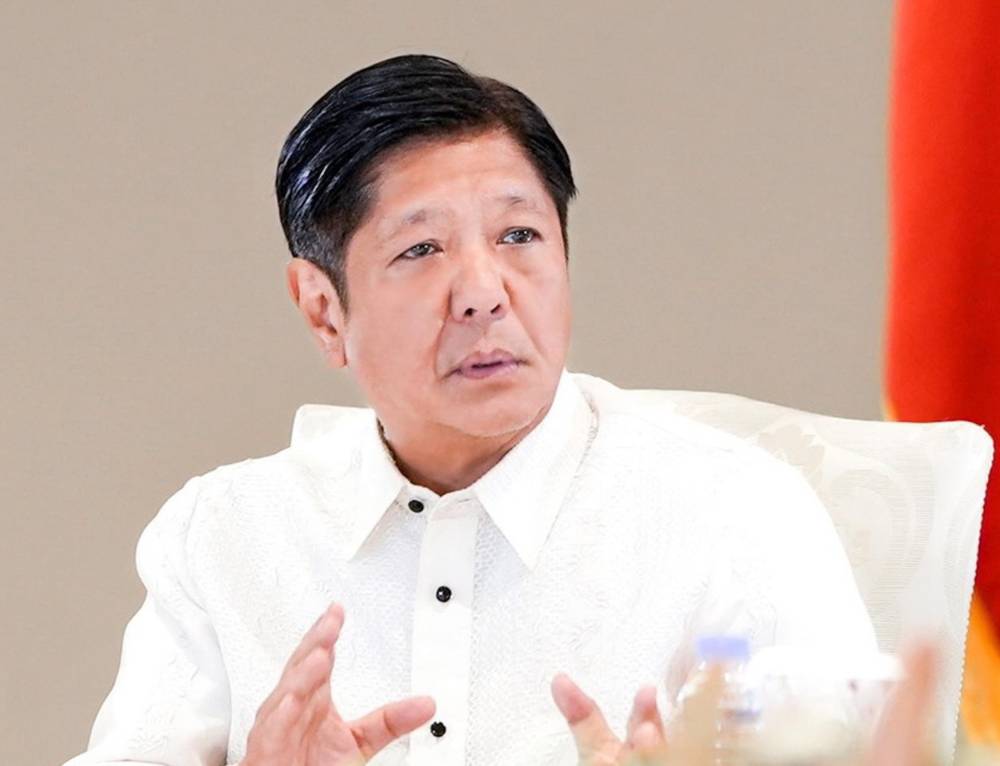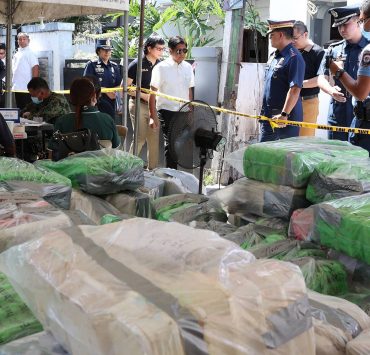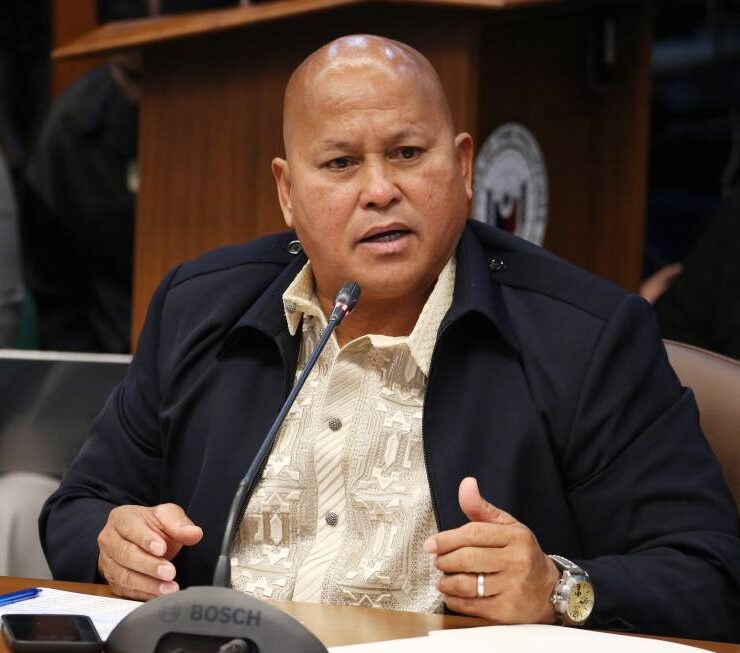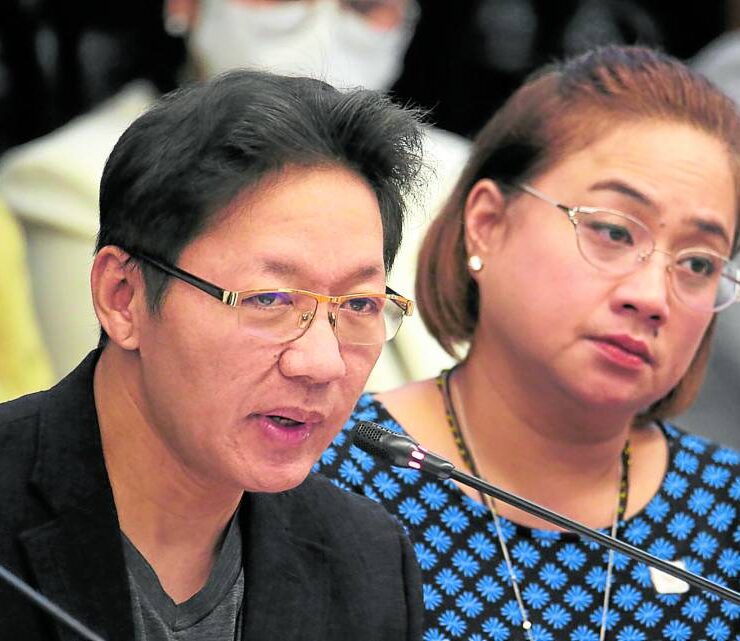Marcos hits ‘secret deal’ anew: ‘I’m rescinding it’

President Marcos said he was rescinding any supposed “gentleman’s agreement” that his predecessor, Rodrigo Duterte, made with China involving the conflicting territorial claims in the West Philippine Sea.
Despite this, leaders of the House of Representatives said they would “consider calls” to start an inquiry into that verbal pact between Duterte and Chinese President Xi Jinping once Congress resumes its regular sessions on April 29.
On April 11, Duterte and the Chinese government separately admitted that he had made a “gentleman’s agreement” not to repair and reinforce the dilapidated World War II-era warship BRP Sierra Madre, which has been serving as a Philippine military outpost at Ayungin (Second Thomas) Shoal, off Palawan province, since it was grounded there in 1999.
But President Marcos, during a question-and-answer session at the 50th anniversary of the Foreign Correspondents Association of the Philippines on Monday, said his administration was not bound by such a deal, as no document had ever been issued to make it legal and binding.
“I’ve said that before, when this first came up a few months ago… It turns out the Chinese are insisting that there is a secret agreement, and perhaps there is, and I said, I don’t know anything about the secret agreement. Should there be such a secret agreement, I am now rescinding it,” he said.
Mr. Marcos made the assertion amid the insistence of China on the existence of a supposed agreement, but the details of which were never disclosed or clarified by either party on both ends of the deal.
“Is there a document that is signed? I’d love to see it. It does not affect the Philippines,” Mr. Marcos said. “So, I’ve rescinded it, if indeed it exists.”
On Aug. 7 last year, the Chinese Foreign Ministry claimed that the Philippines made a promise “years ago” to remove Sierra Madre from Ayungin. The ministry also said that the Philippines “must not send construction materials meant for repairing and reinforcing the ‘grounded’ military vessel on a large scale.”
China has become increasingly aggressive in the West Philippine Sea, especially whenever the Philippine Coast Guard leads rotation and resupply missions to Ayungin.
The Chinese embassy to the Philippines later revealed that they resorted to such tactics because it was irked that the Marcos administration did not adhere to the agreement.
Cautious
President Marcos said he had been cautious about giving public pronouncements on the issue because of the supposed lack of clarity surrounding it.
“It has always been vague — we are so far from getting to the truth… ,” Mr. Marcos said.
Duterte earlier said the agreement with China was aimed at preventing an armed confrontation between Filipinos and Chinese over their maritime dispute in the South China Sea. The former president described the deal as a “status quo” agreement where only food and water were allowed to be brought to troops stationed at Sierra Madre.
Mr. Marcos declined to speculate on the supposed liability of Duterte if indeed he entered into a covert deal with China, as he was dismayed at how former officials had been giving varying versions of the issue.
“We still have to find out what [the agreement] is all about. I’ve talked to… former officials of the previous administration who could have possibly been involved in this discussion, and, I have to tell you — I haven’t gotten a straight answer out of anyone,” he said.
“One party says there’s no agreement; another says ‘there was talk but it’s only status quo.’ The other one, will say, ‘there was an agreement,’” Mr. Marcos said.
The President said the insistence of China to assert its supposed stake on the deal had led him to believe the existence of the “secret” agreement.
“I do not think the Chinese government — I don’t think Beijing — will just make up, just out of nowhere say, ‘there was a secret agreement,’ when there was no such thing,” he said.
But he also wondered what were the terms of the deal, and what the Philippine side had agreed to compromise. “Why is there not one shred of evidence that can show that this agreement exists?” he said.
Mr. Marcos said he was also puzzled that no one from the Duterte administration had informed him about such deal involving the West Philippine Sea.
“I hear one thing, and another thing, and another thing, and another thing, it’s all full of ‘palusot’ (excuses), in other words. I don’t know how to translate that in English,” he said.
House probeAccording to House Majority Leader and Zamboanga Rep. Jose Manuel Dalipe, the planned inquiry at the lower chamber is “aimed at guaranteeing transparency and protecting national interests… [as] protecting our national territory and marine resources are of utmost importance.”
Assistant Majority Leader and Zambales Rep. Jay Khonghun said this was also driven by “mounting demand for clarity” over the agreement.
ACT Teachers Rep. France Castro has called on Congress to investigate the details of the agreement and find out if it can be considered an act of treason.
Last week, Khonghun, whose province covers a section of the West Philippine Sea, also started calling for an investigation as this was “not just about conflicting narratives; it’s about upholding integrity and accountability.”
“We cannot allow uncertainty to cloud our national interests. The Filipino people deserve clarity and honesty from our leaders,” he added.
‘Constitutionally void’
House Deputy Majority Leader and Mandaluyong Rep. Neptali Gonzales II maintained that whatever pact was made would have been “constitutionally void” as this would be “tantamount to the surrender of our country’s sovereign rights over our exclusive economic zone.”
“Such an agreement will be equivalent to a new national policy, which must be enshrined in a treaty to be submitted to the Senate for ratification before it can take effect,” added Gonzales, who is chair of the House special committee on the West Philippine Sea.
In the Senate, Majority Leader Joel Villanueva on Tuesday said the Philippines should have a “unified stand” in tackling the West Philippine Sea issue as he lamented that even some government officials were parroting China’s propaganda.
“Unfortunately, and I would say this with all humility, it’s sad that Filipinos have been issuing conflicting remarks. It’s like we don’t have a baseline truth,” Villanueva said at the Kapihan sa Senado media forum.
He reiterated that there should be no debate over the country’s ownership of Ayungin and Panatag (Scarborough) shoals.
The issue, he said, had already been settled when the Philippines secured a landmark arbitral court victory in 2016 that invalidated China’s expansive claims in the South China Sea. WITH REPORTS FROM MARLON RAMOS AND INQUIRER RESEARCH INQ





















